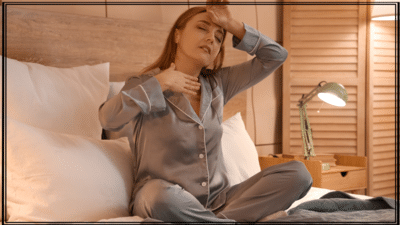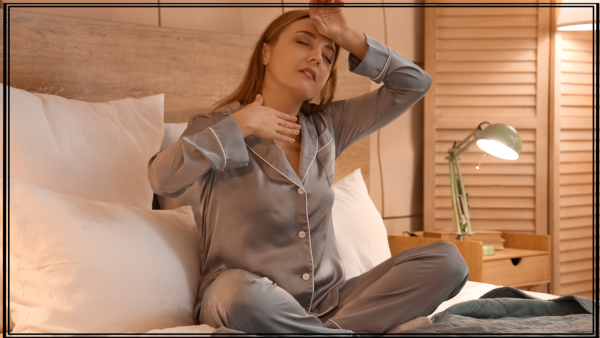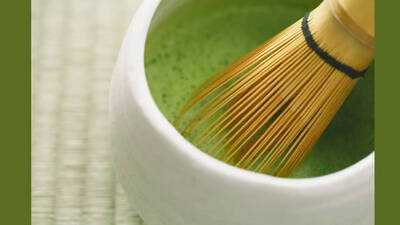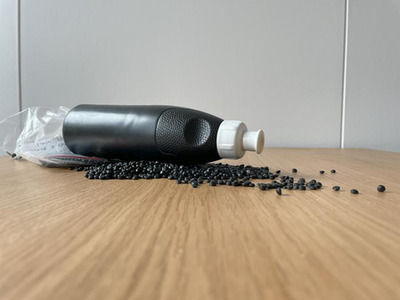
Waking up soaked in sweat during the night can be frightening. Don't panic yet, though. While sometimes, if you wake up in this way, it could be because of your room temperature controls or pre-bedtime routine, recurring episodes may be a symptom of an underlying medical condition just awaiting diagnosis. So, what are night sweats, and when should you panic? (source: fortis healthcare, mayo clinic)
What are night sweats?
Night sweats are instances of intense sweating at night, despite a cold room and proper breathing. They just exceed your normal sweating attacks, usually saturating your clothes and sheets with perspiration. As per doctors, night sweats can be triggered by several factors ranging from mere lifestyle issues to severe medical conditions.
What are the possible causes you may ignore?

Sleeping environment
It's sometimes simply the temperature. Sleeping in a room that is too warm, sleeping under heavy covers, or sleeping in thick pajamas can lead to overheating and night sweats. The switch to lightweight, airy fabrics and the circulation of air will be helpful.
Diet and lifestyle
Your nighttime routine may be at fault, too. Eating spicy foods, drinking alcohol or caffeine, or exercising within a few hours of bedtime can elevate your core body temperature, stimulating sweat glands even during sleep.
Stress and anxiety
Anxiety or stress always overpowers you. It activates the sympathetic nervous system, the same one responsible for "fight or flight" responses. This causes you to sweat even when your body is resting.
Medical reasons you should be aware of

Hormonal Fluctuations
One of the most common causes of night sweats, especially in women, is hormonal change. Women going through perimenopause or menopause will complain of hot flashes and night sweats due to declining estrogen levels. The same symptoms can be caused by low levels of testosterone in men, too.
Other hormonal disorders, such as hyperthyroidism, carcinoid syndrome, and hormonal imbalance during pregnancy, can disrupt your body's internal thermostat.
Medications
Certain drugs are also to blame for night sweats as a side effect. Some of them are:
- Antidepressants (especially SSRIs)
- Steroids
- Medications used in hormone therapy
- Diabetes medicines like insulin,
- Painkillers and opioids
- Even withdrawal from a substance like alcohol or opioids can lead to night sweats.
Night sweats are also your body's way of alerting you to infections or more serious diseases. For instance: Tuberculosis, HIV infection, and endocarditis (infection of the heart lining) have also been known to cause recurring night sweats.
Sleep apnea
(Which occurs when breathing stops while sleeping) and GERD (acid reflux disease) might be involved by association as well.
Low blood sugar
Particularly in patients with diabetes, it can cause hypoglycemic sweating as well. In very rare circumstances, neurological illnesses that impact autonomic body functions can interfere with how your body regulates sweat. Perhaps worst of all, night sweats can also be an early warning sign of some cancers like lymphoma or leukemia, especially if other symptoms like weight loss or extreme tiredness accompany them.
When should we be concerned?

While one hot night won't raise a red flag, repeated, soaking night sweats should prompt a trip to a physician. You should be especially vigilant if sweating is accompanied by:
- Fever or chills
- Unintentional weight loss
- Recurrent cough or fatigue
- Swollen lymph nodes or pain
What can you do?
Cool down your environment: Ventilate your bedroom, use cotton bedclothes, and wear light pajamas.
Stay away from triggers: Reduce alcohol, caffeine, and hot food, especially at night.
Track your symptoms: Record the timing of sweating and other symptoms you notice.
Consult a doctor: If lifestyle changes fail or other warning signals appear, don't delay in seeking a doctor's consultation.
Night sweats aren’t always a cause for alarm. They’re often the result of minor lifestyle factors or stress. However, when they become frequent, intense, or are coupled with other symptoms, they may be a signal from your body that something deeper is at play. Paying attention and taking action early can make all the difference.
-
Why is everyone drinking matcha? Health benefits and preparation tips you must know

-
Cancer rates increasing in young women but 'more than half of cases could be prevented'

-
Cancer breakthrough could transform chemotherapy success rates in UK

-
NHS urges many people aged between 25 and 64 to switch on key phone alert

-
Recycled plastics can harm hormone systems, metabolism: Study
